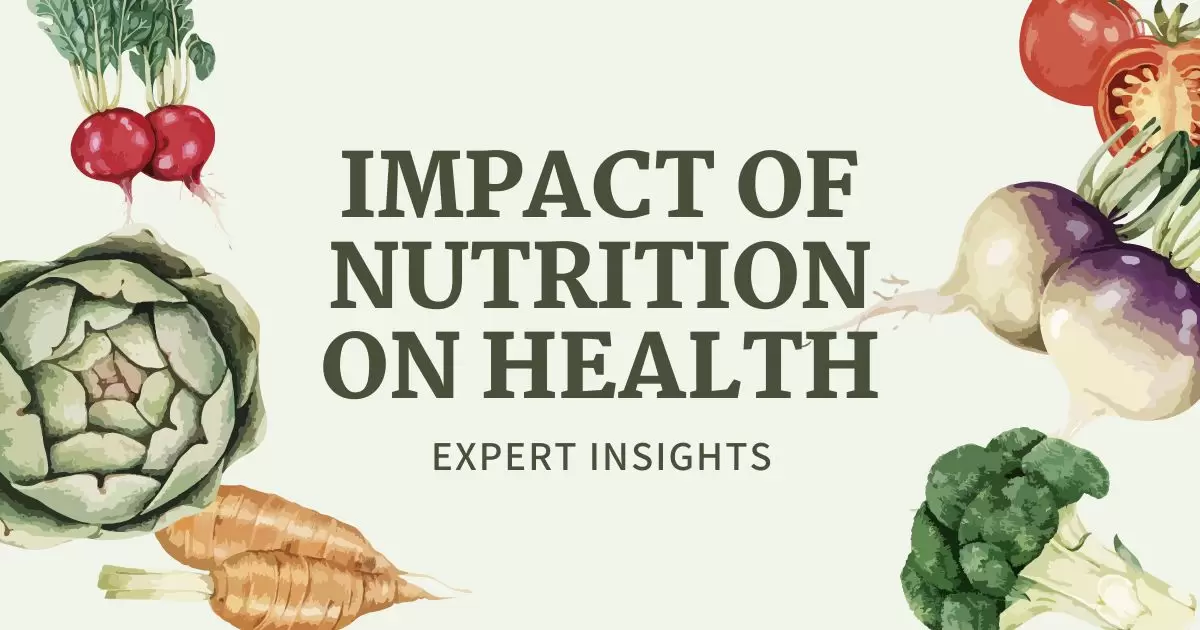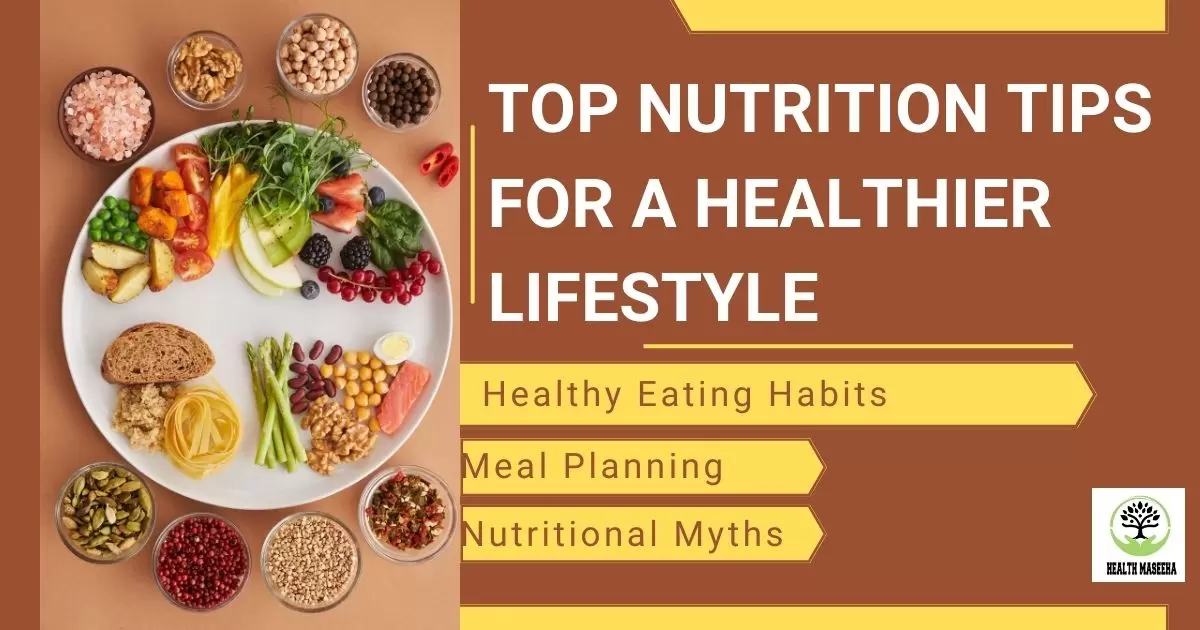A healthier lifestyle means making choices that improve your health and well-being. This includes eating nutritious foods, exercising regularly, getting enough sleep, and avoiding harmful habits like smoking. It helps you feel better, stay strong, and live longer.
Want to feel great and have lots of energy every day? Follow these simple nutrition tips for a healthier lifestyle. Eating the right foods can help you grow strong, stay fit, and do well in school. It’s easy and fun to make healthy choices.
Good nutrition is vital for maintaining a healthy body and mind. It helps in growth and development, boosts the immune system, and reduces the risk of chronic diseases like heart disease, diabetes, and cancer. A well-balanced diet provides the necessary nutrients that the body needs to function correctly and efficiently.
Understanding Nutrients
Macronutrients: Macronutrients are the nutrients that the body requires in larger amounts. They include carbohydrates, proteins, and fats, each playing a unique and essential role in our health. Carbohydrates are the body’s primary energy source and can be found in foods such as grains, fruits, vegetables, and legumes.
Proteins: Proteins are crucial for building and repairing tissues, sourced from meat, dairy products, nuts, and beans. Healthy fats are vital for brain health and energy, with sources including avocados, nuts, seeds, and olive oil. Micronutrients, although needed in smaller quantities, are just as important as macronutrients. They include vitamins and minerals.
Vitamins: Vitamins like A, C, D, and E are essential for various bodily functions, including vision, skin health, and immune function. Minerals such as calcium, potassium, and iron are crucial for bone health, muscle function, and oxygen transport in the blood.
What is a balanced diet?
A balanced diet includes a variety of foods in the right proportions, ensuring adequate intake of all essential nutrients. It helps maintain optimal body weight and promotes overall health. Typically, a balanced diet includes fruits, vegetables, grains, protein foods, and dairy. Each of these food groups provides unique and essential nutrients that contribute to overall health.
Controlling portion sizes helps manage calorie intake and maintain a healthy weight. Nutrition tips for portion control include using smaller plates, measuring servings, and being mindful of hunger cues. A balanced diet combined with portion control ensures that you get the right amount of nutrients without overeating, thus supporting a healthier lifestyle.
Meal Planning
Meal planning helps ensure a balanced diet, saves time, and reduces food waste. It also helps manage dietary goals, whether for weight loss, muscle gain, or general health improvement. Starting with setting dietary goals, creating a menu, and making a shopping list can simplify the process. Tools like meal planning apps and batch cooking can be particularly useful.
Healthy recipes for breakfast might include overnight oats or smoothies, while lunch options could be quinoa salad or chicken wraps. Dinner could feature baked salmon, brown rice, and steamed broccoli, with snacks like fresh fruit or nuts. Planning meals in advance can help you maintain a balanced diet and avoid unhealthy food choices.
Read More: Mediterranean Diet Plan
Healthy Eating Habits
Mindful eating involves paying full attention to the eating experience. Techniques include eating slowly, savoring each bite, and listening to hunger and fullness cues. This practice can lead to better digestion and satisfaction. When eating out, make healthier choices by choosing grilled over fried foods, asking for dressings on the side, and opting for whole grain options.
Understanding nutrition labels can help make informed food choices. Look for key information such as serving size, calories, and nutrient content. Focus on high-fiber, low-sugar, and low-sodium options to ensure you are choosing the healthiest options available.
Special Dietary Needs
Popular diets for weight loss include low-carb, low-fat, and calorie counting. Each of these diets has its own unique approach to reducing calorie intake and promoting weight loss. Athletes often require higher protein and balanced carbs to support energy and muscle recovery, with hydration being crucial.
Vegetarian and vegan diets exclude meat and sometimes other animal products. Key nutrient sources include legumes, nuts, seeds, and fortified foods. Meal ideas for vegetarians and vegans include tofu stir-fry, lentil soup, and quinoa salad. These diets can be healthy and nutritious when properly planned.
When to Use Supplements

Supplements can be beneficial when dietary intake is insufficient. They are commonly used for vitamins, minerals, and other nutrients like omega-3 fatty acids. Multivitamins provide a range of essential vitamins and minerals, while protein powders are convenient for meeting protein needs, especially for athletes.
Omega-3s, found in fish oil or algae supplements, support heart and brain health. However, it’s important to consult a healthcare provider before starting any supplement regimen to ensure it’s necessary and safe for your specific health needs.
Common Nutritional Myths
Common misconceptions about nutrition include the idea that carbohydrates are always bad and that fat makes you fat. These myths can lead to unhealthy dietary choices and misunderstandings about nutrition. In reality, carbohydrates are an important energy source, and healthy fats are vital for brain function and energy.
Debunking these myths with evidence-based facts helps promote better dietary practices. For example, whole grains and fiber-rich foods are beneficial, and unsaturated fats from sources like avocados and nuts are essential for a healthy diet. Understanding the truth about nutrition can lead to more informed and healthier food choices.
Nutritional Needs Through Life Stages
Nutritional needs vary throughout life stages. During childhood, key nutrients support growth and development, while adolescents require a balanced diet to support their rapid growth and development. For adults, maintaining health and preventing chronic diseases are primary nutritional goals.
Seniors face age-related changes that require nutrient-dense foods to support their health. Nutrient needs in seniors often include higher calcium and vitamin D for bone health. Understanding these varying needs helps tailor dietary choices to support health at every life stage.
Impact of Nutrition on Health

Good nutrition plays a crucial role in weight management. Healthy weight loss involves balanced diets and regular physical activity. Maintaining a healthy weight reduces the risk of chronic diseases such as heart disease, diabetes, and certain cancers.
Nutrition also has a significant impact on mental health. A balanced diet with adequate nutrients supports brain function and mental well-being. Poor nutrition can lead to issues like depression and anxiety, highlighting the importance of a nutritious diet for overall mental health.
Read More: Good Diet For Losing Weight
How does nutrition affect mental health?
Nutrition plays a crucial role in mental health by directly impacting brain function and emotional well-being. Consuming a balanced diet rich in essential nutrients such as omega-3 fatty acids, vitamins, and minerals supports the production of neurotransmitters, which are chemicals in the brain that regulate mood.
For instance, omega-3s found in fish and flaxseeds are known to reduce symptoms of depression, while vitamins like B12 and folate, present in leafy greens and whole grains, aid in preventing mood disorders. Poor nutrition can lead to deficiencies that negatively affect mental health.
Diets high in processed foods, sugars, and unhealthy fats can increase the risk of developing anxiety and depression. These types of foods can cause inflammation and oxidative stress, which are harmful to brain health. Therefore, maintaining a nutrient-rich diet is essential for sustaining mental health and preventing psychological disorders.
Read More: Mental Health Practice
Environmental and Ethical Considerations
Sustainable eating involves making eco-friendly diet choices, such as consuming more plant-based foods and reducing food waste. These choices help reduce the environmental impact of food production and promote a healthier planet.
Ethical eating focuses on animal welfare and fair trade. Choosing products that are sustainably and ethically produced supports these values. Being mindful of where and how food is produced can lead to healthier and more ethical dietary choices.
Expert Insights
Nutritionists and other health professionals offer valuable advice and recommendations for improving diet and health. Their expert insights can guide you in making better dietary choices and understanding the complexities of nutrition.
Consulting with a nutritionist or dietitian can provide personalized dietary advice tailored to your specific health needs and goals. Their expertise helps ensure that you are following a balanced and nutritious diet.
FAQs
How can I start eating healthier for a Healthier lifestyle?
Begin by incorporating more fruits and vegetables into your diet, controlling portion sizes, and choosing whole grains over refined grains.
Are supplements necessary for everyone?
Supplements can be beneficial when dietary intake is insufficient, but it’s important to consult a healthcare provider before starting any supplement regimen.
How can I maintain a healthy diet while traveling?
When traveling, make healthier choices by opting for grilled over fried foods, asking for dressings on the side, and choosing whole grain options.
Conclusion
Good nutrition is essential for maintaining a healthier lifestyle. Understanding the importance of nutrients, following a balanced diet, and adopting healthy eating habits can significantly impact your overall health. This comprehensive guide provides valuable nutrition tips and insights to help you make informed dietary choices.
Remember, making small, consistent changes in your diet can lead to significant improvements in your health. Stay informed, be mindful of your eating habits, and seek professional advice when needed. Your journey to a healthier lifestyle starts with good nutrition.












